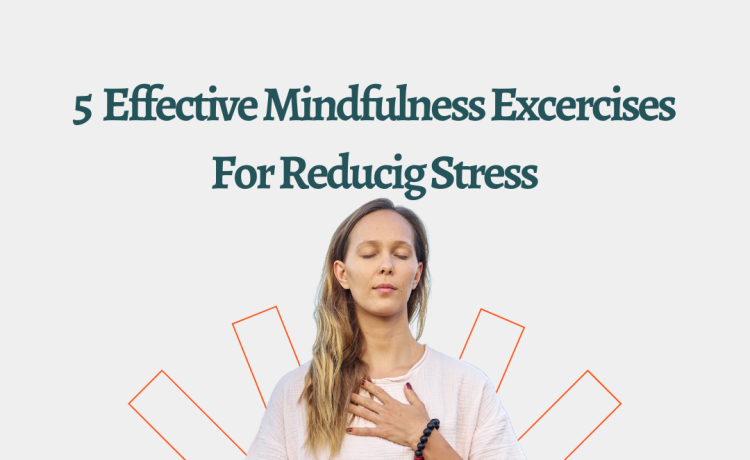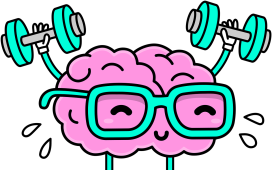Let’s picture this, you’re in the midst of a hectic day, juggling work deadlines, family obligations, and an endless stream of notifications from your smartphone. You rush from one task to another without pausing to check in on your well-being. Your stress levels are skyrocketing, and taking a moment for yourself appears to be an unattainable luxury. However, mental health is not a luxury; it is an essential component of our overall health and quality of life.
In this article, we will look at highly effective mindfulness exercises that anyone can do. These are simple and inexpensive practices that can make a significant difference in effective stress management and mental well-being. These mindfulness exercises that can help you live a calmer, more balanced life.
These exercises can be used as a daily dose of mental self-care, allowing you to find serenity amid chaos and enjoy the luxury of a stress-free life.
So fasten yourselves as we dive into 5 effective mindfulness techniques that can help you find peace, reduce stress, and enjoy the benefits of a healthier mind.
5 Effective Mindfulness Exercises for Reducing Stress
- Deep Breathing
Our breathing becomes shallow when we are anxious or stressed. Our breath isn’t fully drawn into our lungs and is instead held in our chest. So, this brings us to our very first method of stress reduction, deep breathing. This technique involves breathing through the belly and not the chest in a slower and deeper fashion. There are many mental health benefits of deep breathing including decreased anxiety and stress as well as improved sleep and a more focused mind.
Let’s give it a try to this simple relaxation exercise
You just need to sit in a comfortable position. Start by taking a deep breath in and a long, relaxing breath out.
2. Progressive Muscle Relaxation
Whether we perceive it or not stress creates tension in the body. In this method of stress reduction, you have to purposely tense and relax the different muscles so you can have more insights into the line between feeling tense and feeling relaxed.
This technique entails contracting a particular muscle group as you inhale and then releasing the tension as you exhale. You can initiate your learning process by accessing instructional videos, books, or mobile applications.
3. Meditation
If you can overlook some of the questionable and unscientific claims associated with meditation, you’ll discover a pleasantly surprising reality. This practice offers verified benefits for reducing stress, offering not only immediate relief but also aiding in the long-term management of stress. It enhances your concentration, and overall sense of contentment, and nurtures mindfulness. In simpler terms, it teaches you to be present in the here and now, allowing you to fully embrace your experiences without distractions and anxiety.
4. Guided Imagery
This stress reduction technique uses the power of mind, memories or imagination to create a sense of relaxation. A facilitator or recorded audio guide leads you through a specific scenario, such as a peaceful beach, a serene forest, or a healing garden, during guided imagery. They encourage you to imagine and interact with this mental scenery, making it as realistic as possible by using all of your senses. The primary goal of guided imagery is frequently to achieve a specific goal, such as stress reduction, pain management, improved sleep, or self-confidence. It has therapeutic potential and is frequently used to supplement medical treatments in healthcare settings.
5. Physical Activity
Regular physical activity is an effective way to relieve anxiety. Exercise increases endorphin production, decreases stress hormones, and improves sleep quality. It also serves as a healthy distraction, increases self-esteem, and encourages social interactions. Physical activity’s mind-body connection and neurotransmitter regulation can be beneficial for anxiety management in the short and long term.
Conclusion
Including these mindfulness exercises in your daily routine can help you reduce stress and improve your mental health. Remember that prioritizing your mental health is a necessary investment in yourself, not a luxury. As you go through these exercises, you’ll realize you have the power to change your life and embrace a stress-free existence, one mindful moment at a time. Begin today and witness the transformative power of these simple yet priceless exercises on your path to a happier, healthier you.








1 Comment